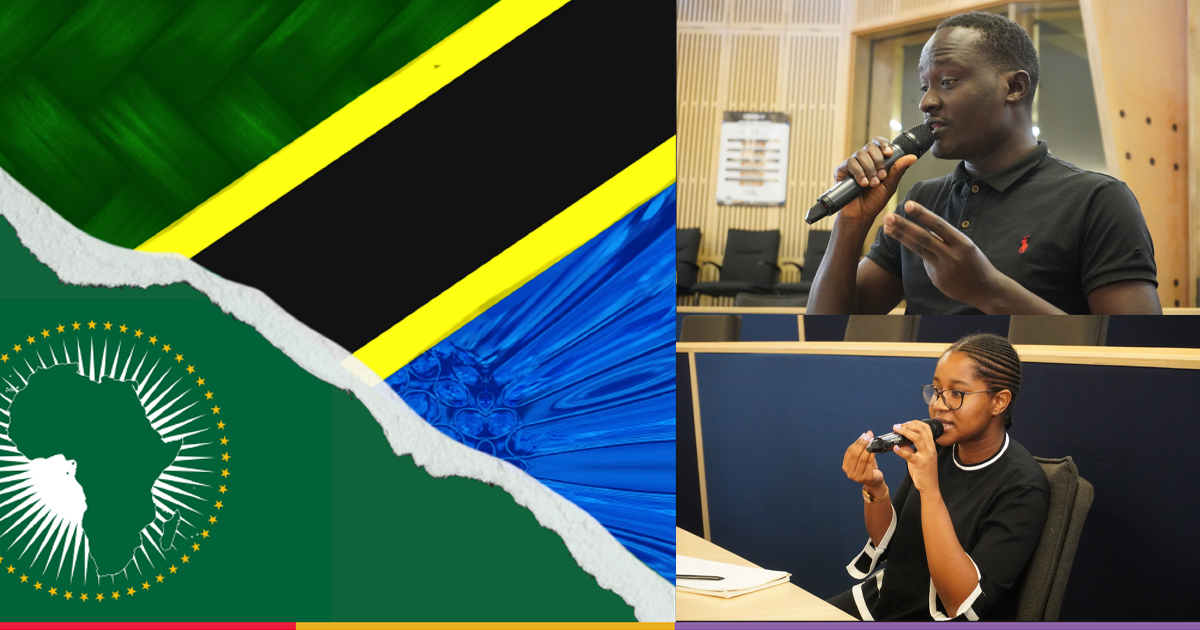First of a series
As part of its efforts in increasing awareness and understanding among relevant stakeholders about the jurisprudence of African human rights bodies, the Centre for Human Rights, Faculty of Law, University of Pretoria, on 7 April 2022 launched a quarterly webinar series on decisions of African human rights bodies.
The webinar series of discussions on decisions of African human rights bodies aims to analyse the normative aspects of recent decisions of African Union human rights bodies, to take stock of and analyse the challenges to implementation, and to identify strategies for partnerships to build momentum for advocacy and effective implementation of these decisions. While the first discussion for 2022 focuses on decisions of the African Court on Human and Peoples’ Rights, the next two discussions will be devoted to decisions of the African Commission on Human and Peoples’ Rights (African Commission) and the African Committee of Experts on the Rights and Welfare of the Child (African Children’s Committee).
Tanzanian death penalty decisions: Ally Rajabu and Gozbert Henerico
The inaugural webinar took the form of a hybrid meeting attended by over 100 participants both and physically. The webinar focused on two inter-linked decisions of the African Court in the cases of Ally Rajabu and Others v Tanzania (decided on 28 November 2019) and Gozbert Henerico v Tanzania (decided on 10 January 2022). In both these cases, the applicants successfully challenged the imposition of the mandatory death penalty in Tanzania.
The panellists featured in the webinar are the Head of Legal Department of the African Court, Ms Grace Kakai; the Chief Executive Officer of the Pan African Lawyers’ Union (PALU,) Mr Donald Deya, who represented the applicants in the Gozbert Henerico case, and a renowned scholar on the death penalty, Professor Andrew Novak, Associate Professor in criminology at George Mason University (Virginia, USA). The webinar also featured a contribution from a former member of the African Commission (from 2003 to 2009) and Tanzanian national, Advocate Bahame Tom Nyanduga.
Highlights of the inaugural webinar
In his opening remarks, the Director of the Centre, Prof Frans Viljoen, pointed out that the three African human rights bodies have between them amassed a considerable body of ‘African human rights jurisprudence.’ African regional jurisprudential labours started in the late 1995, when the African Commission decided its first communication on the merits, followed by the Children’s Rights Committee (deciding its first merits decision (Institute for Human Rights and Development in Africa and Open Society Justice Initiative (on behalf of children on Nubian descent in Kenya) v Kenya, in respect of in 2011), and by the Court (with its first merits decision (Mtikila v Tanzania) in 2013). He highlighted that even though the objective of the case discussion is to focus on recent cases of African human rights bodies, it was imperative that a discussion of the most recent decision of the Court on the death penalty in Tanzania (Gozbert Henerico) be extended to the case that set the precedent of the African Court on the mandatory death penalty (Ally Rajabu).
Ms Kakai highlighted the main findings of the Court in the two cases. She noted that the applicants in both cases essentially challenged section 197 of Tanzania’s Penal Code, which provides for a mandatory death penalty following upon conviction for all murder cases. Notably, the Court held that the mandatory nature of the sentence imposed by section 197 meant that a judicial officer could not have any discretion regarding the sentence given after conviction on a murder charge. Since the mandatory nature of the death penalty left no discretion to the Judge, it constituted an arbitrary depravation of the right to life. The arbitrariness of the sentence meant that article 4 of the Charter, protecting the right to life, and consequently article 1 of the Charter, were violated. While the death penalty would be permissible, the Court held that it should be implemented in a manner involving the least suffering possible. The ordinary method of carrying out the sentence in Tanzania — hanging — was found to constitute cruel, inhumane, and degrading punishment, and was therefore declared inconsistent with article 5 of the Charter.
Ms Kakai explained that in the Rajabu case, the Court ordered Tanzania within one year of the judgment to remove the mandatory imposition of the death penalty from its Penal Code Orders, and within one year to take all necessary measures for the rehearing of the case on the sentencing of all the applicants ‘through a procedure that does not allow the mandatory imposition of the death sentence and uphold the full discretion of the judicial officer.’ She added that Tanzania has not amended its Penal Code within a year, and lamented that there is not much that the Court can currently do to compel states to comply with its orders. It is on this basis that in the Henerico case, the Court ordered Tanzania to amend its Penal Code ‘with immediate effect.’ Because this is a recent decision, there is not yet any report of compliance over the last three months. As to what could be done in light of the endless non-compliance, Ms Kakai mooted the idea of reporting Tanzania to the Executive Council of the African Union.
Mr Donald Deya acknowledged the progressive trend in the Court’s jurisprudence over time on issues such as fair trial rights and specifically on the death penalty. He noted that implementation of Court’s decisions continues to be a challenge as a result of a lack of willingness by states to remove the death penalty from their statute books; challenges with understanding the decisions and reasoning of the Court, at times fuelled by preconceived attitudes of state parties, and the lack of national mechanisms for the enforcement of decisions of African states at the national level.
In light of such challenges, Mr Deya reported that PALU and other CSOs in Tanzania have invested energy in discussions around how to motivate the Tanzanian government to implement the Court’s decisions. A number of strategies have since been conceptualised, such as advocacy for invocation of the presidential pardon and release on parole for people convicted for murder in Tanzania. Furthermore, PALU is collaborating with other non-governmental organisations in Tanzania to develop a matrix of the status of implementation of the decisions made by the African Court in respect to Tanzania. This matrix is intended to provide a basis for follow-up with relevant institutions. At the continental level, PALU has worked closely with the Network of African National Human Rights Institutions in the 46 countries where they exist, with a view to establishing a working relationship with local organisations in order to push for implementation. This is in addition to pushing for specialised technical committee on legal and justice affairs of the African Union to have a standing agenda item on implementation of decisions of African human rights institutions.
Professor Andrew Novak provided global nuances to the discussion by highlighting the waning of the mandatory death penalty at the global level. He further noted that some international bodies have already declared the mandatory death penalty as arbitrary because it takes away the discretion of the judicial officer when imposing sentence, by not allowing for a convicted accused to present mitigating factors relevant in their case. In this view, section 197 of the Penal Code should have been held to be inconsistent with the due process requirements in article 7 of the African Charter, as a mandatory sentence excludes the possibility of a convicted person being heard on the issue of sentencing. Not having a sentencing hearing violates the right to a fair trial. To correct the defect in the sentence imposed on the applicants, Professor Novak argued that the Tanzania President cannot simply commute the mandatory death penalty sentences to other forms of sentences not involving death (such as life imprisonment). Rather, he argued that the two judgments require that the state must ensure an individualised hearing for each convicted person, enabling them to present mitigating factors before being sentenced afresh.
Professor Novak also commented on the impact of the African Court’s finding in the Rajabu case that hanging as a method to implement the death sentence was inconsistent with the Charter on the basis of being inhumane and degrading. In his view, it is difficult to imagine a different form of execution (such as shooting or lethal injection) that would not also be considered as inhumane and degrading. This leads to the conclusion that the death penalty, by whatever means, would constitute a violation of the Charter.
Advocate Tom Nyanduga, provided local context to the discussion. He pointed out that despite the existence of section 197 of the Tanzanian Penal Code, there has not been any executions of persons convicted of murder recently. This begs the question as to why the state of Tanzania defends the mandatory death penalty in its Penal Code, despite being a de facto abolitionist state. Advocate Nyanduga ended by saying that this is an area that needs much research before one can conclusively speak as to the reasoning of Tanzania in deciding to keep the provision, despite it not serving any deterrent purpose.
Participants in the webinar also highlighted important proposals on how implementation of the Court’s proposal on the death penalty can be achieved. Foremost among these was for the AU to consider adopting a Protocol to the African Charter on the abolition of the death sentence. This, it was noted, would require generating political will on the part of African states. Some of the participants also raised concerns as to whether the mood is right for the discussion on abolition of the death penalty in light of eminent threats on the African continent such as terrorism.
Significance of the inaugural webinar
Overall, all participants appreciated the discussion as timely. Litigation and determination of issues by judicial bodies such as the African Court is often only the beginning of a long process towards ensuring justice for victims of human rights violations. Therefore, when the Court delivers its decision and makes its orders, there remains a need for complementary efforts including raising awareness about the normative aspects of the decision and its actual implementation.
The inaugural webinar provided a platform for reflection, dialogue and synergy among key stakeholders on the normative aspects of the mandatory death penalty and the evolving regional and global jurisprudence around the mandatory death penalty. It also served as a platform for reflections, and synergy on the implementation of the decisions of the African Court on the death penalty in Tanzania.
The next event in this series, during which a decision of the African Commission will be discussed, is scheduled to take place in July.
For more information, please contact:
Tel: +27 (0) 12 420 3151
michael.nyarko@up.ac.za
Tel: +27 (0) 12 420 3151
foluso.adegalu@up.ac.za
Tel: +27 (0) 12 420 3151
zainab.olaitan@up.ac.za





